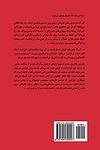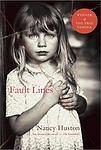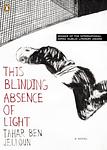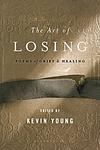The Greatest French "Historical fiction, Fiction" Books Since 2000
Click to learn how this list is calculated.
This list represents a comprehensive and trusted collection of the greatest books. Developed through a specialized algorithm, it brings together 290 'best of' book lists to form a definitive guide to the world's most acclaimed books. For those interested in how these books are chosen, additional details can be found on the rankings page.
Genres
Historical fiction is a genre of literature that combines fictional stories with real historical events, settings, and characters. These books often take place in a specific time period and are based on research and factual information, but also include imaginative elements to create a compelling narrative. Historical fiction allows readers to experience the past in a unique and engaging way, while also providing insight into the social, cultural, and political issues of the time.
Countries
Date Range
Reading Statistics
Click the button below to see how many of these books you've read!
Download
If you're interested in downloading this list as a CSV file for use in a spreadsheet application, you can easily do so by clicking the button below. Please note that to ensure a manageable file size and faster download, the CSV will include details for only the first 500 books.
Download-
1. Suite Française by Irène Némirovsky
"Suite Française" is a two-part novel set during the early years of World War II in France. The first part, "Storm in June," follows a group of Parisians as they flee the Nazi invasion. The second part, "Dolce," shows life in a small French village under German occupation. The novel explores themes of love, loss, and survival, and provides a unique perspective on life in France during the war. The book was written during the war but was not discovered and published until many years later.
-
2. La Part De L'autre by Éric-Emmanuel Schmitt
The book presents an intriguing alternate history, exploring two parallel narratives: one in which Adolf Hitler is accepted into the Academy of Fine Arts in Vienna, leading to a life as a modest artist, and another where he is rejected, setting him on the path to becoming the Führer of Nazi Germany. This thought-provoking exploration examines the impact of seemingly small events on the course of history and the nature of evil, as it juxtaposes the life Hitler could have led with the infamous one he did, raising questions about destiny, choice, and the inherent potential for good and evil within us all.
-
3. Grey Souls by Philippe Claudel
Set against the backdrop of World War I in a small French town, the novel delves into the cold and somber atmosphere of a community living in the shadow of conflict. The story revolves around the mysterious death of a young girl, whose body is found by the river, and the subsequent investigation that unfolds years later. The narrative, rich with melancholy and introspection, is told through the eyes of a policeman who becomes obsessed with the case. As he delves deeper into the town's secrets and the grey souls of its inhabitants, the lines between victim and perpetrator blur, revealing the complex nature of guilt and the human psyche amidst the pervasive despair of war.
-
4. The Scortas' Sun by Laurent Gaudé
"The Scortas' Sun" is a sweeping family saga set in the heart of the Italian South, where the Scorta family, marked by a history of poverty and criminality, struggles to achieve a sense of honor and prosperity. The narrative spans several generations, exploring themes of legacy, identity, and the relentless pursuit of a better life. Despite the harshness of their environment and the stigma attached to their name, the Scortas are bound by a fierce familial loyalty and a determination to ensure that their descendants enjoy the dignity and opportunities that they themselves were denied. The novel delves into the intimate moments and grand dreams that shape the family's destiny, painting a vivid portrait of a clan's unyielding resilience in the face of adversity.
-
5. The Kindly Ones by Jonathan Littell
The book in question is a fictional memoir of a former SS intelligence officer who recounts his experiences during World War II, offering a detailed and disturbing insight into the machinery of the Nazi genocide from the perspective of a perpetrator. The narrative delves into the protagonist's complex psychology and his role in the atrocities committed during the Holocaust, as well as his post-war life. The novel is notable for its extensive historical research, moral ambiguity, and the controversial and unflinching portrayal of the horrors of the time.
-
6. Fault Lines by Nancy Huston
"Fault Lines" is a novel that delves into the complex layers of family history and the impact of past traumas on the present. The narrative unfolds through the eyes of four different children from successive generations of the same family, each chapter moving back in time to reveal the secrets and challenges faced by their ancestors. The story explores themes of identity, memory, and the inherited nature of suffering, as the protagonists grapple with the legacies of war, displacement, and personal tragedy that ripple through their lineage. The novel's unique structure and poignant storytelling invite readers to reflect on how the fault lines of history can shape individual lives and relationships across generations.
-
7. Sarah's Key by Tatiana de Rosnay
The novel intertwines two stories: one of a young Jewish girl named Sarah, who is brutally arrested with her family during the Vel' d'Hiv Roundup in 1942 Paris, and the other of an American journalist, Julia, living in contemporary France. As Julia investigates the roundup's history for an article, she uncovers the harrowing tale of Sarah, who locked her younger brother in a cupboard to protect him from the police, promising to return. The narrative reveals the impact of this historical event on Sarah's life and connects it to Julia's own family history, leading to profound revelations that change Julia's life. The book explores the themes of memory, guilt, and the legacy of the Holocaust.
-
8. This Blinding Absence Of Light by Tahar Ben Jelloun
The novel delves into the harrowing experience of a man who, after participating in a failed coup, is sentenced to life imprisonment in a Moroccan desert concentration camp. In this hellish environment, he and his fellow inmates endure unimaginable suffering, with the narrative exploring themes of survival, hope, and the human spirit's resilience. Through the protagonist's eyes, the reader witnesses the brutality of his conditions, the struggle to maintain sanity in the face of relentless darkness, and the power of storytelling as a means of preserving one's identity and humanity amidst the most oppressive circumstances.
-
9. Un Attieké Pour Elgass by Tierno Monenembo
"Un Attieké Pour Elgass" is a heartwarming and thought-provoking novel that follows the journey of Elgass, a young Guinean boy, as he navigates the challenges of growing up in a small village. Faced with poverty, cultural traditions, and the desire for a better life, Elgass embarks on a quest to fulfill his dreams and find his place in the world. Through vivid storytelling and rich character development, the book explores themes of identity, resilience, and the power of human connection.
-
10. The Art Of Losing by Alice Zeniter
The novel explores the complex layers of identity, belonging, and the legacy of colonialism through the story of a French-Algerian family across three generations. It delves into the life of a young woman who grapples with her grandfather's painful past as a harki, an Algerian who fought for the French during the Algerian War of Independence. As she uncovers her family's history, she confronts the silence and trauma that have shaped their experiences of dislocation and cultural disconnection. The narrative weaves between past and present, revealing the enduring impact of historical events on individual lives and the struggle to reconcile with one's heritage in a modern world.
-
11. Paris Nocturne by Patrick Modiano
This novel unfolds as a mysterious and evocative narrative centered around a young man who becomes embroiled in a perplexing incident one night in Paris. After being hit by a car, he finds himself plunged into a deep investigation of his past, guided by cryptic clues and shadowy figures who drift in and out of his life. As he delves deeper, the boundaries between past and present blur, leading him on a haunting journey through the streets of Paris. The city, with its hidden corners and forgotten stories, becomes a character in its own right, enveloping the protagonist in a labyrinth of memory, identity, and intrigue. This atmospheric tale weaves together themes of memory, loss, and the search for truth, all set against the backdrop of a beautifully rendered Parisian nightscape.
-
12. The Kindly One by Jonathan Littell
"The Kindly Ones" is a controversial and provocative novel that follows the life of a former SS officer, who is of French and German descent, during and after World War II. The narrative is a first-person account of the atrocities he committed and witnessed during the Holocaust, presenting a chilling exploration of the human capacity for evil. The story also delves into his post-war life, his struggle with guilt, and his attempts to rationalize his actions. The novel is a profound and disturbing examination of the darkest aspects of human nature, history, and memory.
Reading Statistics
Click the button below to see how many of these books you've read!
Download
If you're interested in downloading this list as a CSV file for use in a spreadsheet application, you can easily do so by clicking the button below. Please note that to ensure a manageable file size and faster download, the CSV will include details for only the first 500 books.
Download










